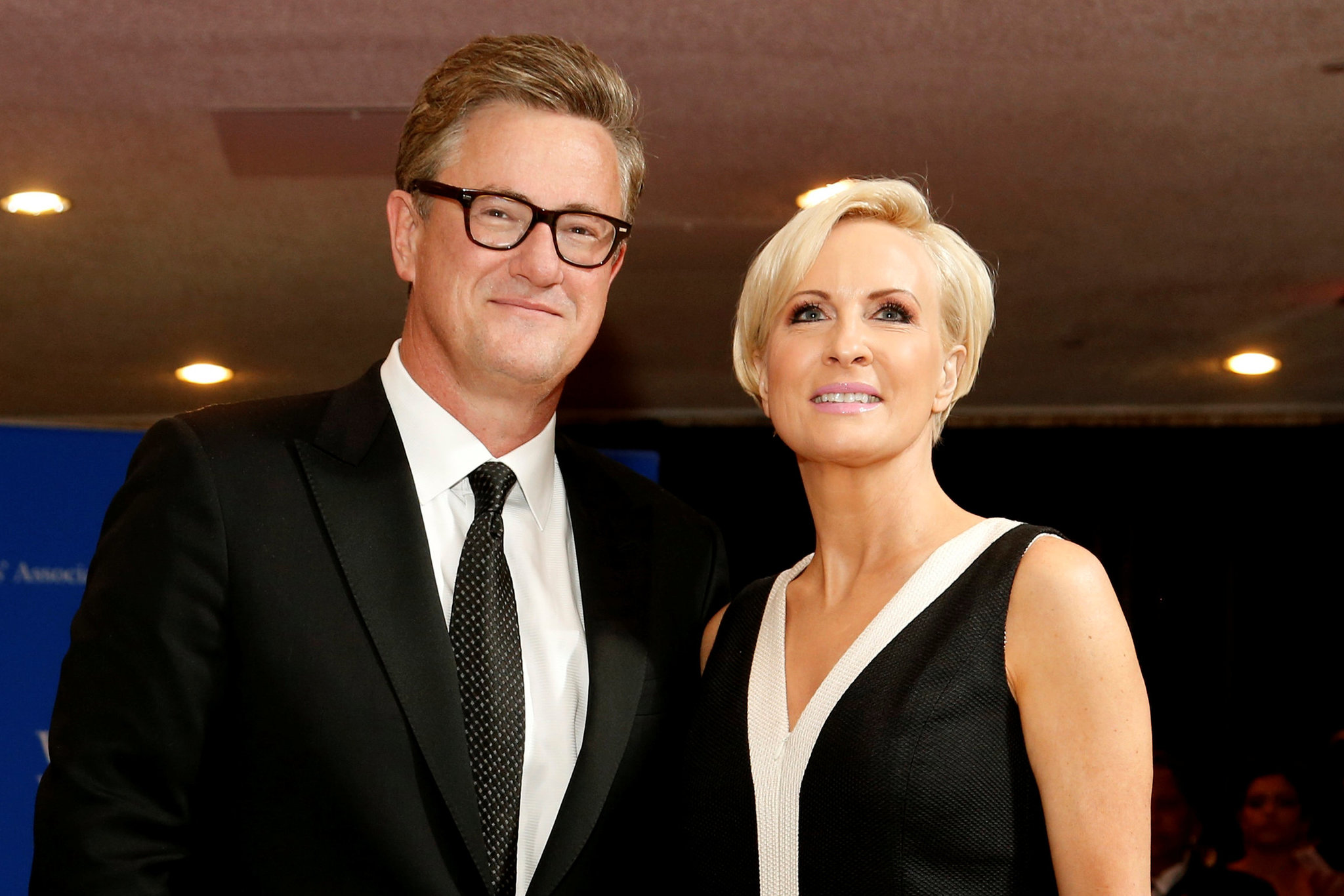Joe Scarborough and Mika Brzezinski, co-hosts of MSNBC’s Morning Joe, are facing significant criticism following their meeting with President-elect Donald Trump at his Mar-a-Lago estate. The meeting, which the hosts described as an attempt to “restart communications” with the incoming administration, has sparked a backlash from colleagues, viewers, and critics questioning the journalistic integrity of such an engagement.
Criticism From Within
The controversy gained momentum after David Jolly, a former Republican congressman and MSNBC political analyst, indirectly criticized the meeting during a segment on Deadline: White House. Jolly expressed skepticism about journalists maintaining objectivity after such interactions, stating:
“You can’t do that if you’re going down to Mar-a-Lago to spend time with him.”
While he acknowledged that his comments might stir controversy within the network, Jolly’s remarks underscored broader concerns about how close relationships with political figures could compromise journalistic independence.
Viewer Backlash
The meeting has also resulted in a noticeable decline in viewership for Morning Joe. Since Scarborough and Brzezinski disclosed their visit to Trump’s Florida estate, the show has experienced daily audience losses. Longtime viewers have expressed frustration, with some accusing the hosts of abandoning their critical stance on Trump for the sake of access.
Social media platforms have been flooded with reactions from disappointed fans. Critics argue that the meeting betrays the principles of accountability and impartiality that the press should uphold, especially in an era of heightened political polarization.
Defense From Scarborough and Brzezinski
In response to the backlash, Scarborough and Brzezinski have defended their decision to meet with Trump, emphasizing their responsibility to maintain open lines of communication with the incoming administration. Brzezinski explained their reasoning in a statement:
“For those asking why we would speak to the president-elect during such fraught times, I would ask back: Why wouldn’t we? Open dialogue is essential to understanding and informing the public about what’s happening at the highest levels of government.”
The hosts argue that their meeting with Trump was consistent with their journalistic mission to engage directly with newsmakers, regardless of past conflicts.
A History of Tension
Scarborough and Brzezinski’s relationship with Trump has been tumultuous. While the president-elect was initially a frequent guest on their show during his 2016 campaign, their coverage turned critical as Trump’s presidency unfolded. The sharp decline in their relationship culminated in public feuds on social media, where Trump disparaged the hosts with personal attacks.
Given this history, their decision to meet with Trump now has raised eyebrows, even among their supporters.
Broader Implications for Journalism
The backlash against Scarborough and Brzezinski underscores the challenges journalists face in maintaining a balance between access and accountability. On the one hand, direct engagement with powerful figures provides valuable insights and ensures robust reporting. On the other, such interactions risk creating the perception of bias or complicity.
Media critics point out that while dialogue is important, it must be conducted transparently to avoid undermining public trust in journalistic institutions.
“When journalists get too close to power, they risk losing the distance necessary to critically evaluate those in authority,” said Dr. Laura Simmons, a professor of media ethics.
The Ratings Decline
Beyond the ethical debates, the controversy appears to have real-world consequences for Morning Joe. The show has suffered a ratings nosedive in the wake of the Mar-a-Lago meeting, with viewers questioning whether the hosts can continue to hold Trump accountable after what many see as a conciliatory gesture.
Some analysts speculate that the ratings decline reflects a broader dissatisfaction among MSNBC’s liberal-leaning audience, who expected the network to maintain a more adversarial stance toward Trump’s presidency.
Looking Ahead
As Scarborough and Brzezinski navigate this controversy, the incident serves as a reminder of the complex dynamics between journalists and the politicians they cover. While open communication is vital, maintaining journalistic independence and public trust remains paramount.
The fallout from their meeting with Trump has sparked an important conversation about the evolving role of media in an era of intense political division and scrutiny.
Sources:
- Former lawmaker takes shot at MSNBC hosts for meeting with Trump at Mar-a-Lago: ‘You can’t do that’
- ‘Morning Joe’ hosts visited Mar-a-Lago for Trump meeting
- Morning Joe suffers ratings nosedive after hosts met Trump at Mar-a-Lago
- Critics slam Morning Joe hosts over Trump meeting

